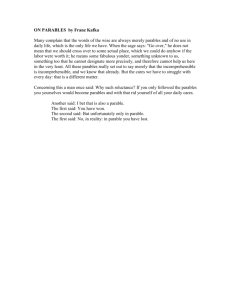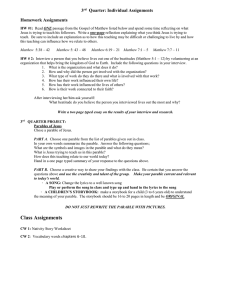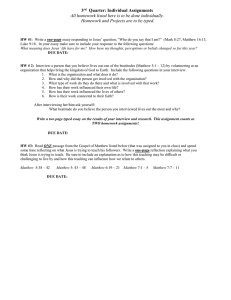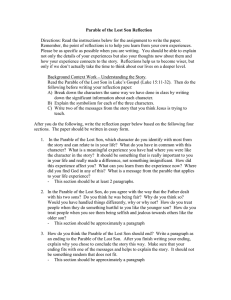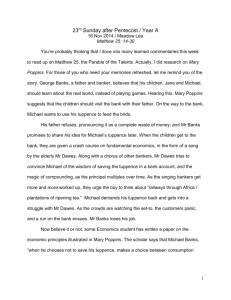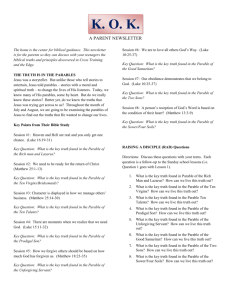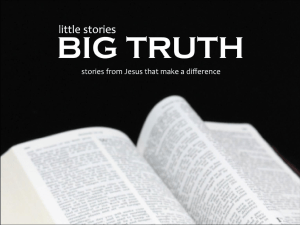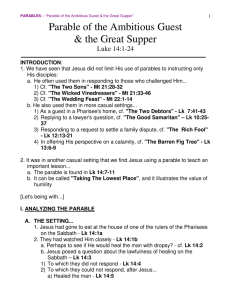`Pay it Forward` Lesson 3 - Hertfordshire Grid for Learning
advertisement
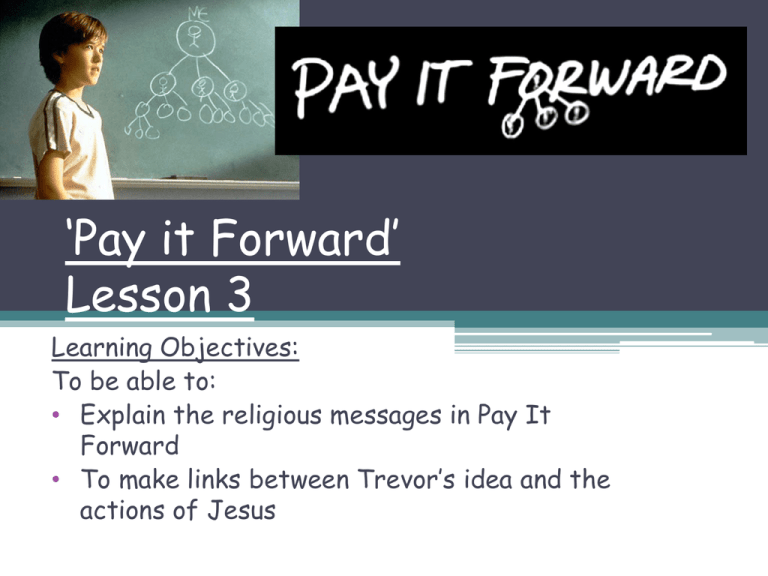
‘Pay it Forward’ Lesson 3 Learning Objectives: To be able to: • Explain the religious messages in Pay It Forward • To make links between Trevor’s idea and the actions of Jesus What does Nelson Mandela mean by the quote below? "Our deepest fear is not that we are inadequate. Our deepest fear is that we are powerful beyond measure. It is our light, not our darkness that most frightens us. We ask ourselves, who am I to be brilliant, gorgeous, talented and fabulous? Actually, who are you not to be? You are a child of God. Your playing small doesn't serve the world. There is nothing enlightened about shrinking so that other people won't feel insecure around you. We were born to make manifest the glory of God that is within us. It is not just in some of us: it's in everyone. And when we let our own light shine, we unconsciously give other people permission to do the same. As we are liberated from our own fear, our presence automatically liberates others." • How does this idea link to the actions of Jesus and Trevor? What is a parable? • Parable = A story with a meaning which was told by Jesus • How many parables can you think of? • Talk to a partner for 2 mins and you will feed your suggestions back to the class The Parables of Jesus The parable of the Good Samaritan (Luke 10:25-37) • You need to consider the links between the parable and the concept of paying it forward. • After looking at the example on the parables grid sheet you will be divided into groups to read and interpret some of the other parables. Parables and stories to be researched: Parable of the Sower Matthew 13:1-9 and 18-23 Parable of the Mustard Seed Matthew 13:31-32 Parable of the Sheep and Goats Matthew 25: 31-46 The Vine and the Branches John 15:1-17 The Sermon on the Mount Matthew 5:1-12 Parable of the Talents Matthew 25:14-30 Once you have read your parable, you need to summarise it in the grid and try and make links to Pay It Forward. You will be expected to present your work back to the class so everyone can complete the whole table. Plenary: • Why might Pay It Forward be considered a modern parable? • What would the message of this parable be?

